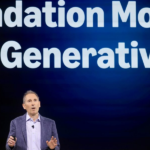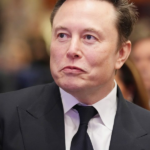Prince painted a grim picture of the potential consequences. One “nihilistic, horrible outcome” is that media and research institutions may simply “starve to death and die.” However, he finds a different scenario more likely: a dystopian return to a pre-Renaissance media landscape. He said AI leaders like Sam Altman could one day control the flow of information, reminiscent of the powerful Medici family of the 1400s, the archetypal Italian merchant-princes at the heart of early capitalism who controlled breathtaking fortunes—along with a huge grip on information itself.
To avert this future, Prince argued “the AI companies have to start paying for content.” Prince then turned to fellow panelists and said they were partnering to try to advance exactly this. Nodding to People CEO Neil Vogel and Idealab CEO Bill Gross, he explained that Cloudflare has implemented a system to block AI crawlers from training on those executives’ sites by default, unless they pay for data.
Despite the dire warnings, Prince also expressed optimism for a potential “golden age of content creation.” He argued that AI models are creating a new market that values unique, quirky content—like that found on Reddit—more than established media. And then he made a bizarre analogy.
The internet has enabled, Prince argued, a “relatively good mathematical model of all human knowledge” for the first time in history. He said he thinks of it like a “giant block of Swiss cheese,” with many holes in it. The problem, according to Prince, is that newspapers such as The New York Times, The Wall Street Journal, and the Financial Times are “really not that different.” The content creators of the future, he argued, have a chance to fill in all of these holes in human knowledge, and the AI companies can help them do that—in one outcome.









